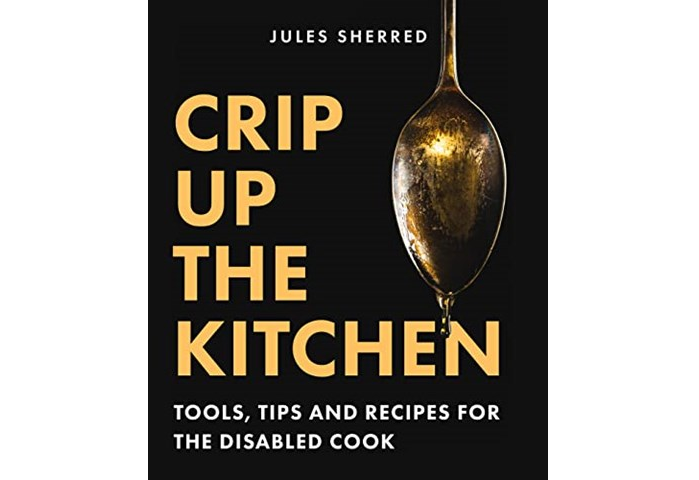The intersection of food and disability
June 20, 2023 by DarcieDisability advocates have long sought to bring visibility to the challenges faced by people who have physical or mental disabilities, highlighting these difficulties while simultaneously amplifying the accomplishments and contributions of disabled people. Culinary culture is catching up in this space, with increasing numbers of bloggers and food writers publishing cooking advice for people who face physical or mental limitations.

One such example is the recent cookbook Crip Up the Kitchen: Tools, Tips, and Recipes for the Disabled Cook by Jules Sherred, which has garnered a lot of positive press. In an interview with Civil Eats, Sherred discusses his motivation for writing book, which he calls “a comprehensive guide and recipe collection that brings the economy and satisfaction of home cooking to disabled and neurodivergent cooks.” He says his outlook toward cooking changed drastically when he discovered the Instant Pot and air fryer, tools that allowed him to create many dishes that he could not have made using conventional kitchen equipment.
An upcoming series hosted by Eater called Low and Slow also explores this topic. The series will feature “interviews, essays, and reported pieces by disabled people. Through November, journalists, activists, and writers will reflect on the ways food intersects with the topics of disability justice, mental health, and more.” Thinking about the intersection of food, cooking, and disability is an important endeavor. If you are not disabled, you most likely know people who suffer from a disability, chronic pain, or chronic illness, so this is something everyone would benefit from knowing more about. As Jules Sherred explains, “At a minimum, 25 percent of people are or will become disabled. And that’s the people who are willing to admit that they are disabled.”
Knowing that there are resources available to help is comforting to people who face the prospect of either short- or long-term disability. Having cooking strategies in place before undergoing a surgery, for example, will make the recovery easier and less frustrating. I had to completely rearrange my cooking habits over four years ago after what I thought would be a short-term health condition turned into a chronic one. I used to spend hours at a time in the kitchen baking elaborate creations. For months I could not even stand up for more than 10 minutes at a time, so I shifted both what I made and how I made it. Having decades of experience in the kitchen made this transition easier for me than it would have been for someone who was younger or less well-versed about what kind of shortcuts might work and which would lead to disaster (not that I avoided every pitfall). I’m glad to see more attention being paid to this issue.
Categories
- All Posts (6889)
- Antipasto (2110)
- Author Articles (246)
- Book News (934)
- Cookbook Giveaways (982)
- Cookbook Lovers (254)
- Cooking Tips (107)
- Culinary News (299)
- Food Biz People (549)
- Food Online (788)
- Holidays & Celebrations (269)
- New Cookbooks (148)
- Recipes (1493)
- Shelf Life With Susie (231)
- What's New on EYB (132)
Archives
Latest Comments
- averythingcooks on New Year’s cookbook and cooking intentions
- dzm on The Golden Wok – Cookbook Giveaway
- KatieK1 on Phaidon turns 101
- KarenGlad on New Year’s cookbook and cooking intentions
- Rinshin on Lucky foods to start 2025
- Rinshin on New Year’s cookbook and cooking intentions
- eliza on New Year’s cookbook and cooking intentions
- JaniceKj on Lucky foods to start 2025
- JaniceKj on New Year’s cookbook and cooking intentions
- matag on New Year’s cookbook and cooking intentions